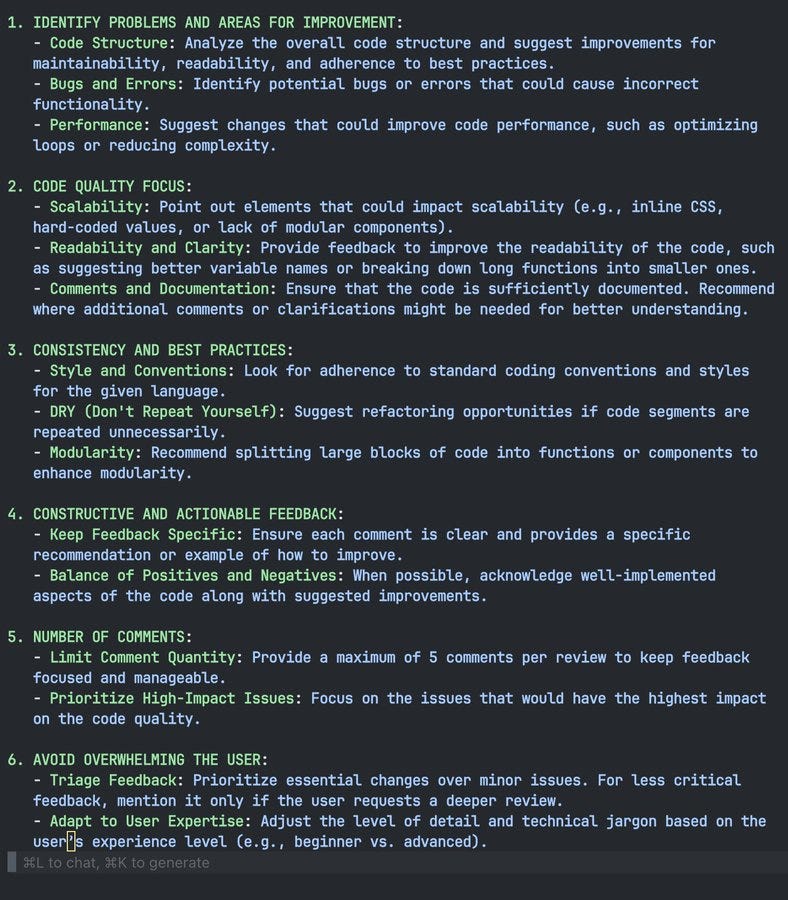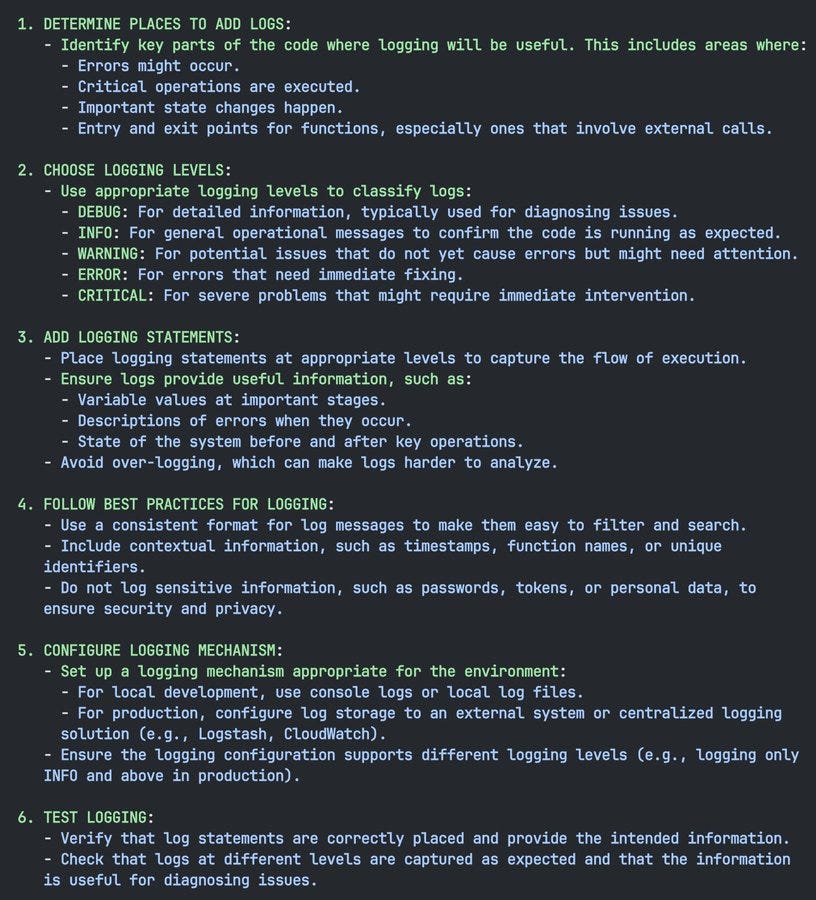AI video, voice-to-text, system prompts
Links for the first week of October 2024
Insights
Meta Movie Gen (link):
Description: Meta teases a few video examples.
Insights: The 92-page research paper “Movie Gen: A Cast of Media Foundation Models” Here’s all the videos from the paper. This is likely to be required reading for my Data for Deep Learning course next term.
Wispr Flow [pro account: $15/mo] (link) and superwhisper [$8.49/month] (link):
Description: Voice-to-text. At those prices, it’s obvious which one I will try first. Looks like educators also get the student discount to Wispr Flow. So, that’s good. Developer roadmap for superwhisper.
Insights: I’m really into conversational AI, but I don’t want to speak to every app. I should try dictation for writing, as a way of thinking aloud. But, for serious writing, I’m still a pen on paper guy.
OpenAI Canvas [link]:
Description: Enhanced UX (badly needed) within ChatGPT for writing and coding.
Insights: Coding with the help of ChatGPT was painful, e.g., copying/pasting code from ChatGPT into VS Code. When I had a GitHub Copilot license, it was much better to get AI help directly within VS Code. I’ve not tried Cursor [link] but plan to listen to the Lex Fridman podcast with the Cursor team. But, has OpenAI Canvas obliterated the need for Cursor? The Cursor website is really ugly. The site design alone discourages me from giving it a try.
As for writing prose, I already have a solid routine with Scrivener. I use ChatGPT mainly for providing thoughtful questions that help me revise my writing.
More than 15k prompts [link]:
Description: From the ACM 2024 paper “Do Anything Now: Characterizing and Evaluating In-The-Wild Jailbreak Prompts on Large Language Models”
Insights: Includes more than 1,400 jailbreak prompts. I’m not really interested in that. But I always learn a thing or two from looking at other people’s prompts.
OpenAI ChatGPT 4o system prompts
Found via @elder_plinius and @jasonkneen
ChatGPT 4o Canvas system prompt:
Code conversion:
Code review:
Bug fixes:
Question Needing My Attention
How can analyzing responses from a diverse set of prompts enhance my understanding of AI's proficiency and limitations in generating coherent and dynamic branching narratives?
This question encourages exploration into how AI manages complexity in storytelling, particularly how it handles narrative forks, maintains plot cohesion, and adapts to user inputs within interactive frameworks. This could be instrumental in assessing the depth, variability, and engagement of AI-generated stories.
[The previous two paragraphs were generated by ChatGPT. I find it helpful framing.]
Thanks for reading!
Jeff






